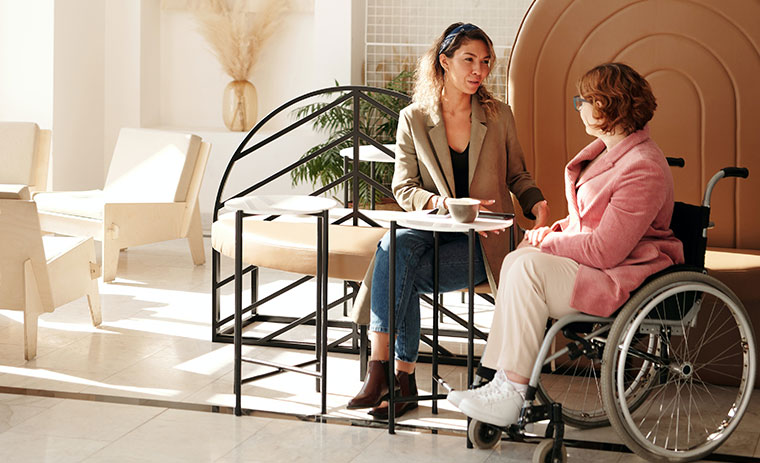10 Benefits of Non-Medical Senior Care
As seniors age, many find that certain daily tasks become more challenging, though they may not need full medical care. This is where non-medical senior care services come in, offering valuable support to help seniors maintain their independence and enjoy a high quality of life. These services range from companionship and meal preparation to help with personal care and light housekeeping. Here are the top 10 benefits of non-medical senior care services for seniors and their families.
1. Promotes Independence
Non-medical senior care services are designed to help seniors stay in their own homes, where they feel most comfortable. By offering just the right amount of assistance, caregivers enable seniors to live more independently, empowering them to continue managing their own lives as much as possible.
2. Reduces Feelings of Loneliness
Companionship is one of the core aspects of non-medical care. Many seniors experience isolation or loneliness, which can impact mental health. Regular visits from a friendly caregiver provide social interaction and companionship, lifting their spirits and helping them feel connected.
3. Enhances Safety at Home
Seniors living alone may face increased risks of falls, accidents, or injuries. Non-medical caregivers assist with tasks like tidying, organizing, and identifying hazards, creating a safer home environment and helping prevent common accidents.
4. Supports Family Caregivers
Family members often take on the role of caregiver, which can be demanding and emotionally challenging. Non-medical senior care offers family caregivers a much-needed break, knowing their loved one is in good hands. This helps family members maintain their own well-being and energy.
5. Provides Personal Care Assistance
Daily tasks like bathing, dressing, and grooming can become difficult with age. Non-medical caregivers provide respectful and dignified personal care, helping seniors maintain good hygiene and feel more comfortable without the challenges of handling these tasks alone.
6. Improves Nutrition and Meal Preparation
Nutrition plays a vital role in senior health, but cooking can become challenging or even risky for some older adults. Non-medical caregivers assist with meal preparation and planning, ensuring that seniors have access to nutritious meals. Some even enjoy sharing a meal together, creating an enjoyable dining experience.
7. Reduces Stress and Anxiety
Aging can bring worries about managing daily life, which can lead to stress and anxiety. Having a dependable caregiver can ease these concerns, providing peace of mind to both seniors and their families. Caregivers help with daily routines, offering stability and reducing stress.
8. Provides Medication Reminders
While non-medical caregivers do not administer medication, they can help seniors stay on track with their medication schedules through gentle reminders. This support is crucial for seniors managing multiple prescriptions, ensuring they don’t miss doses or experience confusion.
9. Encourages Physical Activity and Mobility
Staying active is important for seniors’ overall health, but some may feel hesitant to move around alone. Caregivers can encourage light physical activity, whether it’s taking a short walk, stretching, or doing simple exercises at home. Staying mobile enhances strength, flexibility, and confidence.
10. Offers Emotional Support
Non-medical caregivers provide more than just physical help—they offer genuine emotional support. They’re there to listen, engage in conversation, and respond with care and understanding. For many seniors, this connection becomes a meaningful part of their day, helping improve their mood and emotional well-being.
Conclusion
Non-medical senior care services offer a range of benefits that make life easier, safer, and more enjoyable for seniors. From companionship and personal care to creating a safer home environment, these services play a crucial role in supporting independence, physical health, and emotional well-being. For families, they offer reassurance and relief, knowing their loved one is receiving attentive and compassionate care. Non-medical senior care is all about enhancing quality of life and bringing comfort, joy, and support into the lives of those who need it most.



